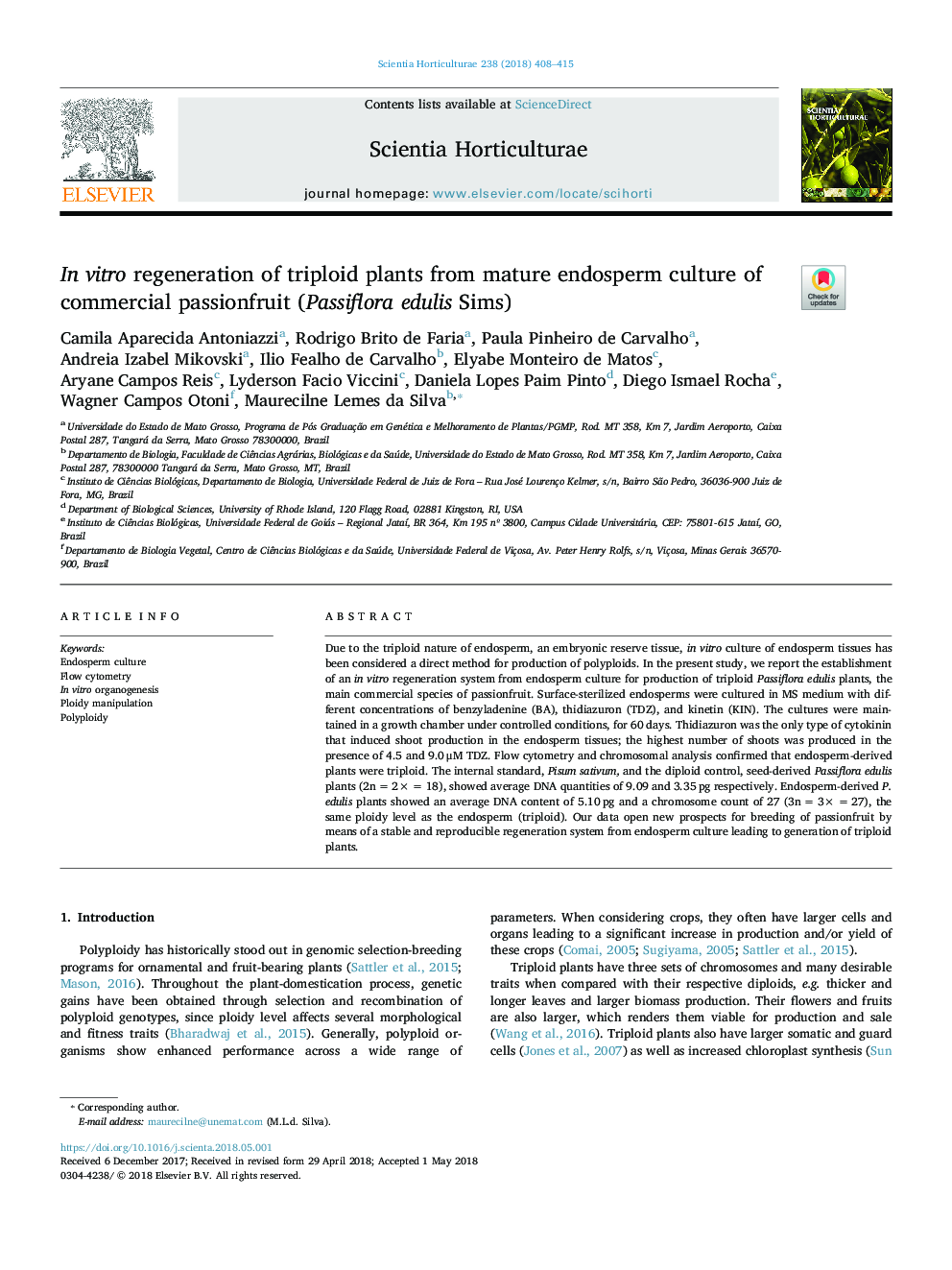| Article ID | Journal | Published Year | Pages | File Type |
|---|---|---|---|---|
| 8892534 | Scientia Horticulturae | 2018 | 8 Pages |
Abstract
Due to the triploid nature of endosperm, an embryonic reserve tissue, in vitro culture of endosperm tissues has been considered a direct method for production of polyploids. In the present study, we report the establishment of an in vitro regeneration system from endosperm culture for production of triploid Passiflora edulis plants, the main commercial species of passionfruit. Surface-sterilized endosperms were cultured in MS medium with different concentrations of benzyladenine (BA), thidiazuron (TDZ), and kinetin (KIN). The cultures were maintained in a growth chamber under controlled conditions, for 60 days. Thidiazuron was the only type of cytokinin that induced shoot production in the endosperm tissues; the highest number of shoots was produced in the presence of 4.5 and 9.0â¯Î¼M TDZ. Flow cytometry and chromosomal analysis confirmed that endosperm-derived plants were triploid. The internal standard, Pisum sativum, and the diploid control, seed-derived Passiflora edulis plants (2nâ¯=â¯2Ãâ¯=â¯18), showed average DNA quantities of 9.09 and 3.35â¯pg respectively. Endosperm-derived P. edulis plants showed an average DNA content of 5.10â¯pg and a chromosome count of 27 (3nâ¯=â¯3Ãâ¯=â¯27), the same ploidy level as the endosperm (triploid). Our data open new prospects for breeding of passionfruit by means of a stable and reproducible regeneration system from endosperm culture leading to generation of triploid plants.
Keywords
Related Topics
Life Sciences
Agricultural and Biological Sciences
Horticulture
Authors
Camila Aparecida Antoniazzi, Rodrigo Brito de Faria, Paula Pinheiro de Carvalho, Andreia Izabel Mikovski, Ilio Fealho de Carvalho, Elyabe Monteiro de Matos, Aryane Campos Reis, Lyderson Facio Viccini, Daniela Lopes Paim Pinto, Diego Ismael Rocha,
